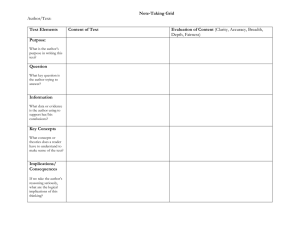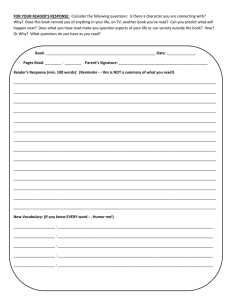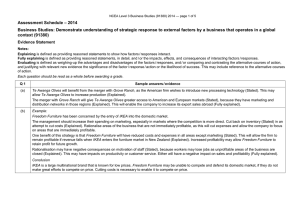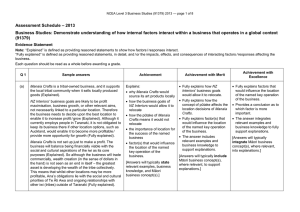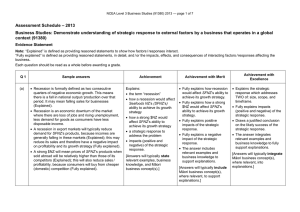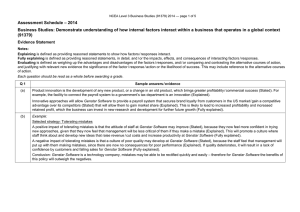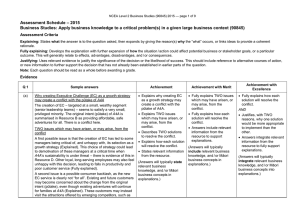Working Characterization of a Good Explanation of Mathematical Reasoning
advertisement
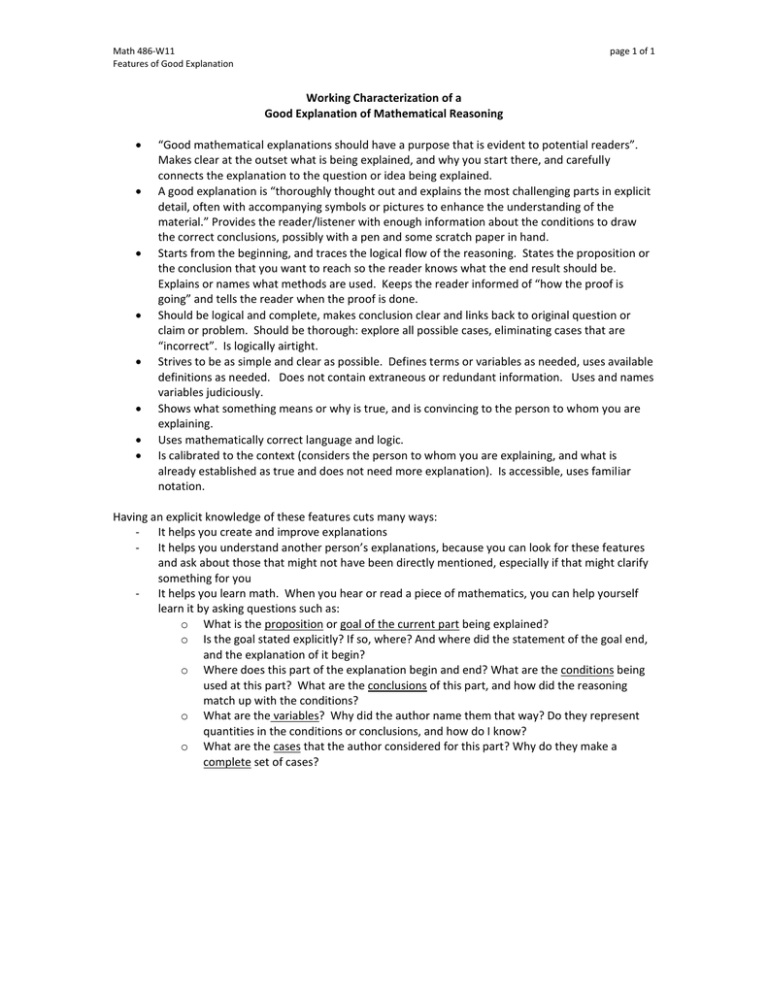
Math 486-W11 Features of Good Explanation page 1 of 1 Working Characterization of a Good Explanation of Mathematical Reasoning “Good mathematical explanations should have a purpose that is evident to potential readers”. Makes clear at the outset what is being explained, and why you start there, and carefully connects the explanation to the question or idea being explained. A good explanation is “thoroughly thought out and explains the most challenging parts in explicit detail, often with accompanying symbols or pictures to enhance the understanding of the material.” Provides the reader/listener with enough information about the conditions to draw the correct conclusions, possibly with a pen and some scratch paper in hand. Starts from the beginning, and traces the logical flow of the reasoning. States the proposition or the conclusion that you want to reach so the reader knows what the end result should be. Explains or names what methods are used. Keeps the reader informed of “how the proof is going” and tells the reader when the proof is done. Should be logical and complete, makes conclusion clear and links back to original question or claim or problem. Should be thorough: explore all possible cases, eliminating cases that are “incorrect”. Is logically airtight. Strives to be as simple and clear as possible. Defines terms or variables as needed, uses available definitions as needed. Does not contain extraneous or redundant information. Uses and names variables judiciously. Shows what something means or why is true, and is convincing to the person to whom you are explaining. Uses mathematically correct language and logic. Is calibrated to the context (considers the person to whom you are explaining, and what is already established as true and does not need more explanation). Is accessible, uses familiar notation. Having an explicit knowledge of these features cuts many ways: It helps you create and improve explanations It helps you understand another person’s explanations, because you can look for these features and ask about those that might not have been directly mentioned, especially if that might clarify something for you It helps you learn math. When you hear or read a piece of mathematics, you can help yourself learn it by asking questions such as: o What is the proposition or goal of the current part being explained? o Is the goal stated explicitly? If so, where? And where did the statement of the goal end, and the explanation of it begin? o Where does this part of the explanation begin and end? What are the conditions being used at this part? What are the conclusions of this part, and how did the reasoning match up with the conditions? o What are the variables? Why did the author name them that way? Do they represent quantities in the conditions or conclusions, and how do I know? o What are the cases that the author considered for this part? Why do they make a complete set of cases?
